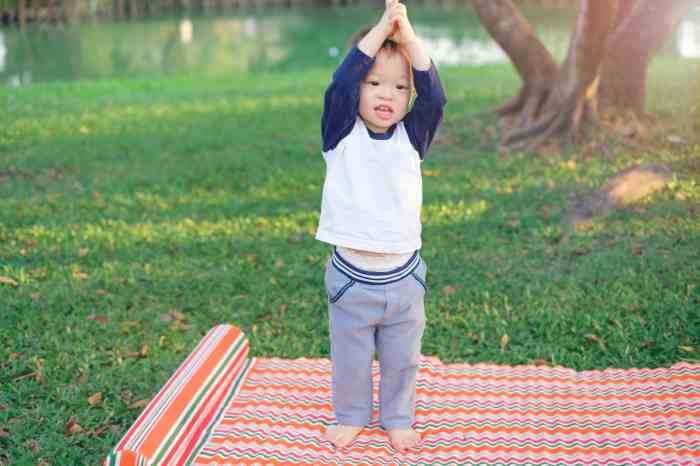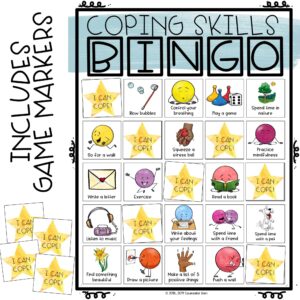15 Little Children’s Meditation Games for Building Social Skills introduces a collection of interactive and educational games designed to enhance social skills in children. From fostering empathy to improving communication and teamwork, these games offer a holistic approach to personal development. Let’s dive in and explore the world of children’s meditation games!
In the following paragraphs, we will delve into each game, discussing their benefits and how they can be seamlessly integrated into a child’s daily routine.
Introduction to Children’s Meditation Games

Children’s meditation games are interactive activities designed to help kids practice mindfulness and build social skills in a fun and engaging way. These games incorporate elements of meditation, such as deep breathing, visualization, and relaxation techniques, to help children develop self-awareness, emotional regulation, and empathy.
Benefits of Using Games for Building Social Skills
- Games make learning enjoyable and increase children’s engagement and participation.
- Playing games in a group setting promotes teamwork, communication, and cooperation among children.
- Games provide a safe space for children to practice social interactions and conflict resolution skills.
- Through games, children can develop emotional intelligence and empathy towards others.
Importance of Introducing Meditation to Children at a Young Age
- Introducing meditation to children at a young age helps them develop lifelong skills for managing stress and anxiety.
- Meditation can improve children’s focus, attention span, and overall emotional well-being.
- Practicing meditation early on can help children build resilience and cope with challenges in a healthy way.
- By teaching children meditation techniques, we empower them to cultivate self-awareness and develop a sense of inner peace.
Importance of Social Skills in Childhood

Social skills development during childhood plays a crucial role in shaping a child’s overall well-being and success in various aspects of life.
Enhanced Communication
One significant impact of strong social skills is improved communication abilities. Children who possess good social skills are better equipped to express their thoughts and emotions effectively, leading to healthier relationships with peers, teachers, and family members.
Conflict Resolution
Another important aspect of social skills is the ability to navigate conflicts and resolve them amicably. Children who are adept at managing conflicts tend to experience less stress and build stronger interpersonal connections, setting a foundation for positive social interactions in the future.
Collaboration and Teamwork
Social skills also play a vital role in fostering collaboration and teamwork among children. By learning to work cooperatively with others, children develop essential skills such as empathy, compromise, and leadership, which are valuable not only in academic settings but also in future professional endeavors.
Emotional Regulation
Furthermore, social skills help children regulate their emotions and understand the feelings of others, promoting empathy and compassion. This emotional intelligence enables children to navigate social situations with sensitivity and adaptability, leading to more positive interactions and meaningful relationships.
Overview of 15 Little Children’s Meditation Games: 15 Little Children’s Meditation Games For Building Social Skills

Children’s meditation games are a fun and engaging way to help kids develop social skills while also promoting mindfulness and emotional regulation. These 15 games are designed to be simple, interactive, and suitable for children of various ages.
Meditation Game 1: Mindful Breathing
In this game, children focus on their breath, practicing deep breathing to calm their minds and bodies. This helps them regulate emotions and improve their ability to concentrate.
Meditation Game 2: Gratitude Circle
Children take turns expressing something they are grateful for, fostering a positive and appreciative mindset. This game encourages empathy and strengthens relationships among kids.
Meditation Game 3: Loving-Kindness Meditation
Kids send positive thoughts and wishes to themselves and others, promoting compassion and empathy. This game helps children understand the importance of kindness and connection.
Meditation Game 4: Emotion Charades
Children act out different emotions without speaking, allowing others to guess how they are feeling. This game enhances emotional intelligence and promotes empathy and understanding.
Meditation Game 5: Sensory Scavenger Hunt
Kids use their senses to explore their surroundings mindfully, noticing details they may have overlooked. This game enhances observation skills and encourages presence in the moment.
Meditation Game 6: Body Scan Meditation
Children focus on different parts of their body, paying attention to any sensations they feel. This game helps kids become more aware of their bodies and emotions.
Meditation Game 7: Nature Connection
Kids spend time outdoors, observing and connecting with nature. This game promotes a sense of wonder, gratitude, and environmental awareness.
Feeling a bit overwhelmed with your kid’s emotions? No worries, here are 15 Best Little Children’s Meditation Tips for Improving Emotional Regulation to help them manage their feelings better.
Meditation Game 8: Mindful Listening
Children practice active listening skills by focusing on various sounds around them. This game improves auditory attention and enhances communication skills.
Just starting out with meditation for the little ones? Take a look at these Top 10 Little Children’s Meditation Techniques for Beginners to get them into the groove.
Meditation Game 9: Guided Visualization
Kids listen to a story or scenario and imagine themselves in that situation. This game stimulates creativity, problem-solving, and emotional expression.
Alright mate, looking to keep the little ones calm and collected? Check out these 30 Little Children’s Meditation Songs for Calmness to help them chill out and relax.
Meditation Game 10: Breathing Buddies
Children use stuffed animals or toys as “breathing buddies” to practice deep breathing together. This game encourages cooperation, teamwork, and shared experiences.
Meditation Game 11: Yoga Poses
Kids engage in simple yoga poses, promoting physical activity, flexibility, and body awareness. This game also helps children relax and relieve stress.
Meditation Game 12: Mindful Eating
Children savor and appreciate their food, paying attention to taste, texture, and smell. This game cultivates mindfulness, gratitude, and healthy eating habits.
Meditation Game 13: Mirror Meditation
Kids look at themselves in the mirror and practice self-compassion and self-acceptance. This game fosters confidence, self-awareness, and positive self-image.
Meditation Game 14: Storytelling Circle
Children take turns sharing stories or experiences, promoting creativity, listening skills, and emotional expression. This game strengthens bonds and encourages empathy.
Need some ideas to calm down the kiddos? These 10 Simple Little Children’s Meditation Ideas for Calming Kids might just do the trick.
Meditation Game 15: Mindful Movement
Kids engage in slow, deliberate movements, such as stretching or dancing mindfully. This game helps children connect mind and body, promoting self-regulation and emotional awareness.These meditation games provide children with valuable opportunities to develop social skills such as empathy, communication, teamwork, self-awareness, and emotional regulation. By incorporating these games into daily routines at home or school, kids can practice mindfulness and social interaction in a fun and meaningful way.
Building Empathy Through Meditation Games

Empathy is a crucial social skill that allows individuals to understand and share the feelings of others. By engaging in meditation games, children can develop empathy towards their peers, promoting kindness, compassion, and emotional intelligence.
Examples of Games
- “Emotion Charades”: Children act out different emotions without speaking, encouraging them to recognize and understand various feelings.
- “Mirror Meditation”: Kids pair up and mimic each other’s movements and expressions, fostering a sense of connection and empathy.
- “Gratitude Journal”: Children write or draw things they are thankful for, promoting empathy towards others and appreciation for the world around them.
Benefits of Nurturing Empathy
- Nurturing empathy in children can lead to improved relationships, conflict resolution skills, and overall emotional well-being.
- Empathetic individuals are more likely to exhibit prosocial behaviors, such as helping, sharing, and cooperating with others.
- Developing empathy early on can contribute to a more inclusive and compassionate society in the long run, fostering positive interactions and mutual understanding among individuals.
Enhancing Communication Skills with Meditation Games

Meditation games can play a crucial role in improving children’s communication skills by fostering mindfulness, empathy, and self-awareness. These games provide a safe and supportive environment for children to practice both verbal and non-verbal communication skills, ultimately helping them become more effective communicators in various social settings.
Got a hyperactive little one on your hands? Try out these 7 Little Children’s Meditation Techniques for Reducing Hyperactivity to help them settle down and focus.
Games that Focus on Enhancing Verbal and Non-Verbal Communication
- Mirror Game: In this game, children pair up and take turns mirroring each other’s movements and expressions. This activity helps them develop non-verbal communication skills by paying attention to subtle cues and body language.
- Storytelling Circle: Children sit in a circle and take turns adding to a story one sentence at a time. This game enhances verbal communication skills by encouraging active listening, turn-taking, and building on each other’s ideas.
- Emotion Charades: Children act out different emotions without using words, and their peers guess the emotion being portrayed. This game helps children understand non-verbal cues associated with different emotions.
Tips to Encourage Effective Communication Through These Games, 15 Little Children’s Meditation Games for Building Social Skills
- Encourage active listening by setting clear expectations and rules for turn-taking.
- Provide positive reinforcement and constructive feedback to reinforce effective communication strategies.
- Model good communication skills yourself and highlight examples of effective communication during and after the games.
- Encourage children to reflect on their communication experiences during the games and discuss what they learned about effective communication.
Fostering Collaboration and Teamwork
Collaboration and teamwork are essential skills that children need to develop in order to succeed in various aspects of life. Meditation games can play a crucial role in promoting collaboration and teamwork among children by encouraging them to work together towards a common goal, communicate effectively, and understand the importance of supporting each other.
Examples of Games that Require Cooperation and Group Effort
- Pass the Energy Ball: Children sit in a circle and pass an imaginary ball of energy to each other. They must focus on sending positive energy and maintaining the flow without dropping it.
- Mindful Storytelling: Children take turns adding to a story, building upon each other’s ideas and creating a collaborative narrative.
- Guided Group Visualization: Children close their eyes and follow a guided meditation that encourages them to imagine a peaceful and harmonious scenario together.
Importance of Teamwork in Social Skill Development
Teamwork is crucial in social skill development as it teaches children how to cooperate, communicate, problem-solve, and empathize with others. By working together towards a common goal, children learn to appreciate each other’s strengths, support one another, and achieve more collectively than they could individually.
Cultivating Mindfulness and Self-Awareness
Mindfulness and self-awareness are essential skills that can greatly benefit children’s social interactions and relationships. Through meditation games, children can develop these skills in a fun and engaging way, allowing them to become more in tune with their thoughts, emotions, and behaviors.
Games that Encourage Self-Reflection and Awareness of Emotions
- Emotion Charades: In this game, children act out different emotions without speaking, while others guess the emotion being portrayed. This helps children become more aware of facial expressions and body language associated with various emotions.
- Mindful Listening: Children sit in a circle and take turns sharing a positive experience. The rest of the group practices active listening without interrupting, encouraging empathy and understanding.
- Gratitude Journal: Encouraging children to keep a gratitude journal where they write down things they are thankful for each day can help them become more aware of the positive aspects of their lives.
Impact of Mindfulness on Social Interactions and Relationships
Mindfulness can have a profound impact on how children engage with others. By being more present and aware of their own thoughts and emotions, children can better understand the feelings and perspectives of those around them. This leads to improved communication, reduced conflict, and stronger relationships built on empathy and mutual respect.
In conclusion, 15 Little Children’s Meditation Games for Building Social Skills provides a comprehensive guide to using playful activities to nurture essential social skills in children. By incorporating these games into daily life, parents and educators can help children develop empathy, communication, teamwork, mindfulness, and self-awareness in a fun and engaging way. Start playing and watch your child blossom socially and emotionally!




